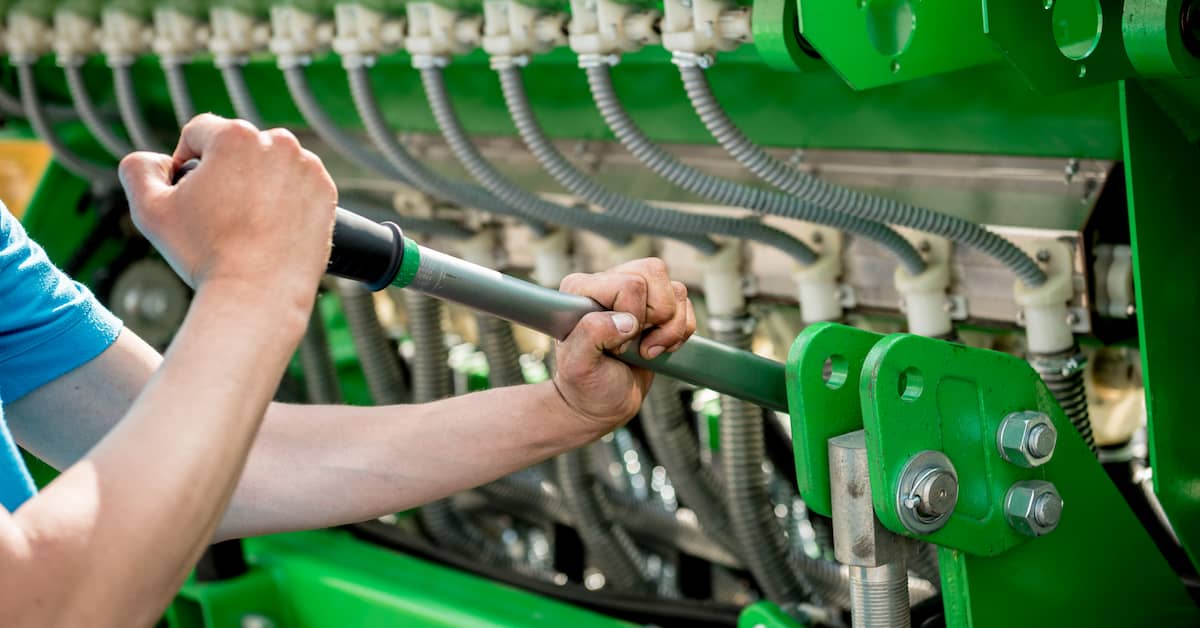
Agricultural life, while rewarding, is one of the most hazardous jobs, with farmers at high risk for suffering fatal and nonfatal farm injuries. According to the Bureau of Labor Statistics (BLS), roughly 2.29 million full-time workers were employed in agriculture in 2022.
In 2020, BLS reported 11,880 lost-work-time injuries. Though agricultural injuries are vastly underreported, that still amounts to more than 32 injuries suffered per day. In 2021, there were 453 work-related fatalities in the agriculture, forestry, fishing, and hunting private industry sector, per the BLS.
While we may see news stories focused on the latest accident, injury, or equipment failure, we never seem to discuss the pattern. We perceive them as isolated incidents. We may prevent future injuries by exploring the common ways farmers can get hurt.
Farm injuries occur more frequently than we realize, possibly because we don’t know to be aware of something until it happens to us or someone we love. If you or a loved one has been injured due to a farm accident, call an experienced Texas farm equipment accident lawyer. Schedule a FREE case review with Patrick Daniel Law today by calling (713) 999-6666.
In 2018 alone, 146 workers suffered fatal injuries involving tractors, according to the BLS. That was the lowest number of tractor-related work deaths since at least 2011. The causes of tractor injuries include:
A tractor isn’t the only type of agricultural machinery that causes injury on a farm. Maintaining a stationary combine with grain heads can result in injury if the farmworker is hit by or against the machine.
Entanglements in gears, belts, chains, and harvesting or moving machinery are just some of the dangers farmers face daily. A Nebraskan farmer, for example, was recently ensnared by a grain auger and was only able to save himself with a pocket knife. And in California, two farm workers tragically died after being pinned down by an almond shaker’s arm.
Working with farm animals is risky as well and can result in getting hit by or against something. This can lead to fractures or bruising. Unfortunately, there are also many “invisible” ways for farmers to get injured. Persistent threats include, but are not limited to:
While maintaining a safety-first mentality is essential to preventing injury, sometimes faulty products can cause unforeseen problems in our lives.
If you or someone you love has experienced farm injuries, it is crucial that you talk to a knowledgeable personal injury attorney who can answer your questions and help you navigate the legal process.
Consult a skilled farm equipment injury attorney with the expertise and understanding necessary to determine who ultimately caused the accident and injuries you or your loved one suffered. For a FREE case evaluation, contact Patrick Daniel Law today.
Transportation incidents, like crashes, tractor overturns, and being struck by a vehicle, were the leading cause of death for farmers and farm workers in 2021, according to the BLS. Some other causes of farm injuries include but are not limited to:
There are many possible injuries that could be caused by the variety of accidents listed previously. These include but are not limited to:
Farm injuries can be costly, debilitating, and even deadly. If you or a loved one has been injured or killed in a farm accident, contact an experienced attorney to help you pursue the compensation you deserve.
As one would expect, most farm accidents occur during the peak harvesting season. June, July, and August are often the most active times of year for an agricultural worker. With activity at its highest rate, there are bound to be more accidents.
During crop production and harvesting, care must be taken to maintain safety protocols. With more workers, extra machinery, and encroaching deadlines, workers may be encouraged to cut corners. To protect yourself and others, it is important to abide by standard safety precautions.
The Occupational Safety and Health Administration (OSHA) recommends following guidelines when working with various types of hazards in an agricultural occupation. These include but are not limited to:
Per OSHA Standard 1928.110, any agricultural operation with 11 or more workers must provide basic sanitary conditions. As a worker, you have the right to:
 Top Truck Accident Lawyer in Pasadena
Top Truck Accident Lawyer in Pasadena Best of The Best Attorneys
Best of The Best Attorneys Best of the Best Houston Chronicle 2021
Best of the Best Houston Chronicle 2021 Best Motorcycle Accident Lawyers in Houston 2021
Best Motorcycle Accident Lawyers in Houston 2021 American Association for Justice Member
American Association for Justice Member The National Trial Lawyers 2016 – (Top 40 under 40)
The National Trial Lawyers 2016 – (Top 40 under 40) Multi-Million Dollar Advocates Forum 2016 (Top Trial Lawyer)
Multi-Million Dollar Advocates Forum 2016 (Top Trial Lawyer) Million Dollar Advocates Forum 2019 (Top Trial Lawyer)
Million Dollar Advocates Forum 2019 (Top Trial Lawyer) America’s Top 100 Attorneys 2020 (High Stake Litigators)
America’s Top 100 Attorneys 2020 (High Stake Litigators) Lawyers of Distinction 2019, 2020 (Recognizing Excellence in Personal Injury)
Lawyers of Distinction 2019, 2020 (Recognizing Excellence in Personal Injury) American Institute of Personal Injury Attorneys 2020 (Top 10 Best Attorneys – Client Satisfaction)
American Institute of Personal Injury Attorneys 2020 (Top 10 Best Attorneys – Client Satisfaction) American Institute of Legal Advocates 2020 (Membership)
American Institute of Legal Advocates 2020 (Membership) Association of American Trial Lawyers 2018 - Top 100 Award recognizing excellence in personal injury law
Association of American Trial Lawyers 2018 - Top 100 Award recognizing excellence in personal injury law American Institute of Legal Professionals 2020 (Lawyer of the Year)
American Institute of Legal Professionals 2020 (Lawyer of the Year) Lead Counsel Verified Personal Injury 2020
Lead Counsel Verified Personal Injury 2020 The Houston Business Journal 2021
The Houston Business Journal 2021